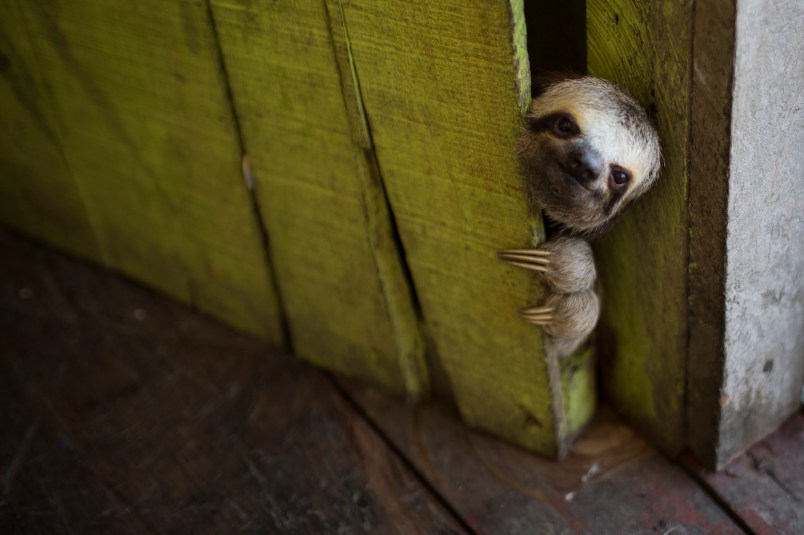GENEVA (AP) — Populations of about 3,000 species of wildlife around the world have plummeted far worse than previously thought, according to a new study by one of the world’s biggest environmental groups.
The study Tuesday from the Swiss-based WWF largely blamed human threats to nature for a 52-percent decline in wildlife populations between 1970 and 2010.
It says improved methods of measuring populations of fish, birds, mammals, amphibians and reptiles explain the huge difference from the 28-percent decline between 1970 and 2008 that the group reported in 2012.
Most of the new losses were found in tropical regions, particularly Latin America.
WWF describes the study it has carried out every two years since 1998 as a barometer of the state of the planet.
“There is no room for complacency,” said WWF International Director General Marco Lambertini, calling for a greater focus on sustainable solutions to the impacts that people are inflicting on nature, particularly through the release of greenhouse gases.
The latest “Living Planet” study analyzed data from about 10,000 populations of 3,038 vertebrate species from a database maintained by the Zoological Society of London. It is meant to provide a representative sampling of the overall wildlife population in the world, said WWF’s Richard McLellan, editor-in-chief of the study.
It reflects populations since 1970, the first year the London-based society had comprehensive data. Each study is based on data from at least four years earlier.
Much of the world’s wildlife has disappeared in what have been called five mass extinctions, which were often associated with giant meteor strikes. About 90 percent of the world’s species were wiped out around 252 million years ago. One such extinction about 66 million years ago killed off the dinosaurs and three out of four species on Earth.
In the new WWF study, hunting and fishing along with continued losses and deterioration of natural habitats are identified as the chief threats to wildlife populations around the world. Other primary factors are global warming, invasive species, pollution and disease.
“This damage is not inevitable but a consequence of the way we choose to live,” said Ken Norris, science director at the London society. “There is still hope. Protecting nature needs focused conservation action, political will and support from industry.”
Copyright 2014 The Associated Press. All rights reserved. This material may not be published, broadcast, rewritten or redistributed.







Sure is a good thing that healthy ecosystems aren’t needed for human beings to prosper. Oh, wait.
Great. Another reason for gun nuts to reject science.
“There is still hope. Protecting nature needs focused conservation action, political will and support from industry.”
OH! Is that all? Then this should get done in no time. Political will, & support from industry is what’s been saving this planet from going into the crapper.
The potential losses to the diversity of life in these regions could be far worse for the planet than we can know at present.
Maybe that Agent Smith motherfucker was right:
I’d like to share a revelation that I’ve had during my time here. It came to me when I tried to classify your species and I realized that you’re not actually mammals. Every mammal on this planet instinctively develops a natural equilibrium with the surrounding environment but you humans do not. You move to an area and you multiply and multiply until every natural resource is consumed and the only way you can survive is to spread to another area. There is another organism on this planet that follows the same pattern. Do you know what it is? A virus. Human beings are a disease, a cancer of this planet.